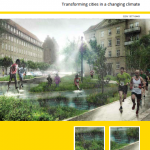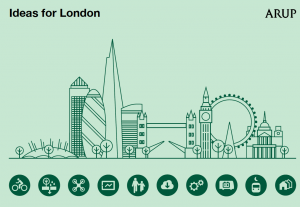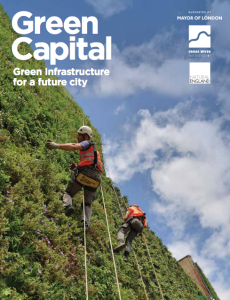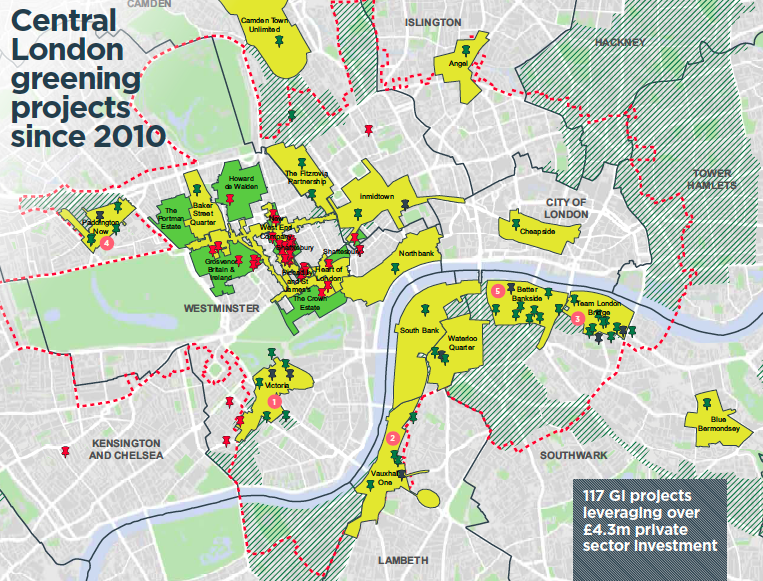Site search:
-
What’s new?
Energy for London Tags
Brent Buildings Camden Carbon Emissions CHP Cities Climate Adaptation Community Heating Community Initiatives Croydon Data DECC Decentralised Energy Distribution ECO Energy Costs Energy Efficiency Enfield FIT Fuel Poverty Funding Green Deal Hackney Haringey Housing Islington Lambeth Library Local Authorities Mayor Newham Ofgem Olympics Photovoltaics Planning RE:FIT RE:NEW Renewable Energy Retrofit Southwark Tower Hamlets Transport Waltham Forest Waste WestminsterEnergy Archives:
- February 2021 (1)
- January 2021 (15)
- December 2020 (15)
- November 2020 (9)
- October 2020 (3)
- August 2020 (5)
- July 2020 (3)
- June 2020 (4)
- April 2020 (10)
- March 2020 (5)
- February 2020 (2)
- January 2020 (3)
- October 2019 (1)
- September 2019 (4)
- August 2019 (2)
- July 2019 (1)
- August 2018 (1)
- November 2016 (8)
- October 2016 (8)
- September 2016 (2)
- August 2016 (8)
- July 2016 (14)
- April 2016 (12)
- March 2016 (16)
- February 2016 (8)
- January 2016 (4)
- December 2015 (1)
- November 2015 (1)
- October 2015 (16)
- September 2015 (3)
- June 2015 (1)
- May 2015 (1)
- April 2015 (1)
- March 2015 (1)
- February 2015 (1)
- January 2015 (1)
- December 2014 (18)
- November 2014 (4)
- August 2014 (8)
- July 2014 (7)
- June 2014 (25)
- May 2014 (8)
- April 2014 (4)
- March 2014 (12)
- February 2014 (7)
- January 2014 (13)
- December 2013 (11)
- November 2013 (15)
- October 2013 (15)
- September 2013 (18)
- August 2013 (5)
- July 2013 (20)
- June 2013 (33)
- May 2013 (8)
- April 2013 (16)
- March 2013 (25)
- February 2013 (14)
- January 2013 (20)
- December 2012 (23)
- November 2012 (23)
- October 2012 (25)
- September 2012 (14)
- July 2012 (12)
- June 2012 (43)
- May 2012 (20)
- April 2012 (8)
- March 2012 (40)
- February 2012 (39)
- January 2012 (40)
- December 2011 (22)
- November 2011 (40)
- October 2011 (33)
- September 2011 (48)
- August 2011 (40)
- July 2011 (58)
- June 2011 (41)
- May 2011 (80)
- April 2011 (38)
- March 2011 (33)
- February 2011 (25)
- January 2011 (24)
- December 2010 (3)
- November 2010 (7)
- October 2010 (6)
- September 2010 (7)
- August 2010 (1)
- July 2010 (2)
- June 2010 (4)
- May 2010 (1)
- March 2010 (3)
- February 2010 (3)
- December 2009 (5)
- November 2009 (2)
- October 2009 (3)
- July 2009 (3)
- June 2009 (1)
- April 2009 (1)
- March 2009 (1)
- February 2009 (1)
- January 2009 (1)
- December 2008 (2)
- October 2008 (1)
- September 2008 (1)
- July 2008 (1)
- March 2008 (2)
- January 2008 (2)
- October 2007 (1)
- September 2007 (3)
- July 2007 (1)
- March 2007 (1)
- February 2007 (3)
- November 2006 (3)
- August 2006 (1)
- February 2006 (1)
- May 2005 (1)
- February 2004 (1)
Library
Future London Climate Risks Set Out
12 July 2016: The Committee on Climate Change (CCC) Adaptation Sub Committee (ASC) published a major new study today providing a detailed scientific assessment of climate change risks to UK. Further information is provided in the following press release, a summary synthesis report, which also links to the individual six sector chapters – which includes a chapter on ‘People and the Built Environment‘ (which is examined below)..
Below is a summary of some of the points most relevant to London from the synthesis report:
- Urban water management: climate change is expected to lead to significant increases in heavy rainfall, with sewers in many urban areas already at or over capacity. More action is needed protect individual properties whilst also beginning to redesign urban landscapes (such as through the use of sustainable drainage approaches) to be able to cope with more intense patterns of rainfall. [p32]
- At present, there are no comprehensive policies in place to adapt existing homes and other buildings to high temperatures, manage urban heat islands, nor safeguard new homes. The level of risk from overheating across the UK is unknown for hospitals, care homes, schools, prisons, and places of work. [p33]
- The urban heat island effect. UK planning strategies do not currently make specific recommendations for reducing the heat island effect such as through planning and urban design, beyond promoting urban green space. [p34]
- More action needed to deliver sustainable drainage systems, upgrade sewers where appropriate, and tackle drivers of increasing surface runoff (e.g. impermeable surfacing in urban areas). [p61]
- Climate-related hazards damage historic structures and sites now, but there is a lack of information on the scale of current and future risks, including for historic urban green spaces and gardens as well as structures.[p66]
- The action underway in London to assess and manage risks of overheating on public transport should continue, together with similar action as needed elsewhere in the UK. [p66]
Posted in Library, News
Tagged Buildings, Cities, Climate Adaptation, Health, Transport
Leave a comment
Urban adaptation to climate change
 July 2016: A new European Environment Agency (EEA) study “Urban adaptation to climate change in Europe 2016 – Transforming cities in a changing climate” has just been published. The report examines whether action on adaptation has led to more climate-resilient cities and if not, what needs to be changed.
July 2016: A new European Environment Agency (EEA) study “Urban adaptation to climate change in Europe 2016 – Transforming cities in a changing climate” has just been published. The report examines whether action on adaptation has led to more climate-resilient cities and if not, what needs to be changed.
The EEA has a few references to work undertaken in London such as:
- “London is installing white panels on top of its public transport buses to reflect the rays of the summer sun and keep the vehicles cooler” (which refers to a 2014 article here). and that;
- “London held a workshop on adaptation indicators in 2015 but as of November 2015 had not yet decided how it will take the work forward” (it is not immediately clear which workshops this comment refers to).
No mention is made in the study to London’s authoritative Climate Change Adaptation Strategy from 2011 or the London Plan’s climate change adaptation policies. (NB Mayor Boris Johnson had committed in February 2015 to produce an update to the adaptation strategy sometime in 2015. Following the non-publication of this update, responding to a question a year later, he committed to the update being produced before his departure as Mayor (May 2016) – however, as yet, no update has been released).
New Ideas for London
April 2016:  A further contribution of potential actions for an incoming Mayor – this time by Arup – in report just published ‘New Ideas in London‘. In the report Arup identify “five areas that the new Mayor should focus on during their first term in office.” Amongst these are a couple considering energy and climate issues – a summary of which follow below:
A further contribution of potential actions for an incoming Mayor – this time by Arup – in report just published ‘New Ideas in London‘. In the report Arup identify “five areas that the new Mayor should focus on during their first term in office.” Amongst these are a couple considering energy and climate issues – a summary of which follow below:
Driving down corporate carbon emissions
- The Mayor has the authority to help adjust London’s procurement protocols to include corporate carbon performance.
- The new Mayor could immediately commission a consultation led by the GLA’s Head of Legal and Procurement to investigate legislative options.
Electric bus battery switch scheme
- Could London work with existing suppliers to design buses that allow their batteries to be switched out quickly and smoothly without disrupting operations? This could take place at optimum points on the network and could ensure that operations are not penalised by the time it takes to charge bus batteries.
Other areas of interest include ‘A London Blue Grid’ and ‘Walking in a Green London’.
Posted in Library, News
Tagged Carbon Emissions, Climate Adaptation, Electric Vehicles
Leave a comment
Heat metering: socio-technical challenges in district-heated social housing
April 2016: “The case of a district-heated council block in London is presented where the installation of individual heat meters was planned in 2010 but had to be suspended due to concerns about implications for occupant heating costs in light of the thermal performance of the building. It illustrates a technically and socially complex environment where fairness in allocating heating costs is an important concern” Research paper presented in academic journal Building Research and Information. Link here. Paper downloadable here.
Major London housing development to be zero carbon from October 2016
April 2016: As highlighted in an earlier post – the GLA have just issued new London Housing Supplementary Planning Guidance (SPG) and Energy Planning Guidance which sets out the carbon targets for new residential developments in the capital following the government’s announcement last year to scrap its zero carbon homes policy.
Full detail follows below – but a helpful summary is provided in the GLAs new Energy Assessment Planning Guidance (page 12) on the key takeaway – new carbon targets:
• Stage 1 schemes received by the Mayor up until 30 September 2016 – 35% below Part L 2013 for both residential and commercial development.
• Stage 1 schemes received by the Mayor on or after the 1st October 2016– Zero carbon (as defined in section 5.3 of this guidance) for residential development and 35% below Part L 2013 for commercial development
Over the past few months, the Mayor has referred to keeping London’s zero carbon homes policy through a number of responses to Mayoral Questions (see references below). This new Housing SPG is however the first official GLA document which confirms the process for how the zero carbon policy is to be implemented. The full text from the SPG on Zero Carbon Homes follows below – with some accompanying analysis:
Posted in Decentralised Energy, Energy Efficiency, Library, News, Renewable Energy
Tagged Housing, Islington, Planning, Retrofit, Westminster
Leave a comment
Green Capital
March 2016:  “London’s businesses can play an important role in greening the city, making it a more attractive and healthy place. To help businesses to green the city, we’ve supported 15 ‘green infrastructure audits’. These identify where greening projects, like green roofs, green walls, and planters, could be put in place. We are also supporting businesses to install these greening projects”
“London’s businesses can play an important role in greening the city, making it a more attractive and healthy place. To help businesses to green the city, we’ve supported 15 ‘green infrastructure audits’. These identify where greening projects, like green roofs, green walls, and planters, could be put in place. We are also supporting businesses to install these greening projects”
Read the GLA case study guide, Green Capital, here and watch the video here.
The Mayor’s Green Infrastructure Task Force report, published in December 2015, can be read here. Further information on Greening London can be seen here on the GLA website alongside London’s Green Roof Map.
Smart City Opportunities for London
March 2016: A new Arup study ‘Smart City Opportunities for London‘ has just been published by the GLA. This report was commissioned to investigate how “London can make the most of the benefits of digital technology by assessing London’s strengths as a smart city and identifying the opportunities for stakeholders in the smart city market.” 
The findings of this report will support the update of the Smart London Plan, the capital’s smart city strategy. It looks at five key industries in detail – energy, water, waste, transport and health. On Smart energy the report states that “London faces energy challenges, including security of supply, ageing infrastructure, fuel poverty, and failure to align retail energy prices with wholesale costs.International and national policies prescribe switching to renewable sources of energy as a way to reduce the use of fossil fuels as well as address climate change and the depletion of resources. The deployment of smart solutions has started to address energy challenges in London, such as trialling smart grid solutions (UK Power Networks) and installing smart meters in homes. There are plenty of opportunities for companies to develop and implement more solutions in renewable energy, smart grid and electric transport. We estimate that the market for smart energy solutions in London could grow to $2.1bn by 2020.”
Cities and the Future of Technology
March 2016: A report has recently been published by President Obama’s Council of Advisors on Science and Technology report recommending ways to make the most of technology and innovation opportunities for cities.
The report considers how the “urban ecosystem can benefit from the integration of a wide array of technologies that have been evolving rapidly, including systems to increase energy efficiency, renewable energy technologies, connected and autonomous vehicles, water and wastewater management systems, communications technologies to enhance connectivity, and new ways to do farming and manufacturing.”
Energy systems considered supporting in city environments include: Distributed renewables, Co-generation, District heating and cooling, Low-cost energy storage, Smart-grids, micro-grids, energy-efficient lighting and Advanced HVAC systems.
Four key recommendations are made in the report – the first of which is:
“The Secretary of Commerce, working with the Secretaries of Housing and Urban Development, Transportation, and Energy, should establish an interagency initiative, the Cities Innovation Technology Investment Initiative (CITII), which will encourage, coordinate, and support efforts to pioneer new models for technology-enhanced cities incorporating measurable goals for inclusion and equity.”
Similar recommendations on coordinating UK government policy action across various departments – especially in relation to supporting the roll out of low carbon energy systems – have been made over the past two years in DECC’s D3 report, the IPPR’s City Energy Report and ERP’s cities report. Though no such cross-departmental unit has as yet been established, it is interesting to note that DECC are working with a number of the cities involved in the government’s city devolution process, and are referred to in Liverpool’s devolution agreement and Manchester’s Devolution Agreement.
Posted in Decentralised Energy, Energy Efficiency, Library, News, Renewable Energy
Tagged Cities
Leave a comment
‘Cleantech City’ in West London
15 March 2016: New London Sustainable Development Commission (LSDC) report published recommending to the Mayor of London that a business district for new low-carbon industries is given the go ahead at Old Oak and Park Royal. Full details here.
Posted in Library, News
Leave a comment
District heating as heterotopia
27 January 2016: “District heating as heterotopia: Tracing the social contract through domestic energy infrastructure in Pimlico, London” – new research paper published in the latest issue of the journal Economic Anthropology (PDF here). A presentation on the paper can be seen here.
Citizens Advice District Heating research
20 January 2016: Citizens Advice research just published District Heating Networks: analysis of information request which found:
“There are an estimated 2,000 heat networks in the UK and with district heating schemes having been identified as one of the key technologies to decarbonise the heat we use in our homes and businesses this is set to increase.
At present there is very little available data on these existing district heating schemes making it difficult to assess how well they work in practice or whether they offer good value for their customers. There are many unanswered questions when it comes to the use of district heating for residential properties and without a central database of publicly accessible information questions about its applicability and affordability will remain.
Through the process of conducting this information request Citizens Advice has found the availability of information patchy at best and the fact that Local Authorities, through no fault of their own, don’t have sight of these systems is concerning.”
TfL CO2 emissions increase
November 2015: Transport for London latest ‘Health, Safety and Environment’ report has been recently posted online – available to download here (direct link here).
An important issue in relation to carbon emissions raised in the report, is London Underground’s reliance on grid supplied electricity:
“For electricity, we calculate the total CO2 emissions generated by multiplying the amount of energy we use by the Government’s annual emissions factor. This measures how much CO2 was emitted during the energy generation process, for example by power stations. It depends directly on the grid mix, eg the amount and type of fuel (coal or renewable energy) that was used to generate the national grid electricity in that year. Figure 9 shows that there was a 10 per cent rise in the carbon intensity of the grid mix in 2014/15. This means that our electricity-based CO2 emissions results are indicating a similar level of increase. To show the underlying trend of the change in energy use, rather than the change affected by the energy source, over which we largely have no control, we are for the first time also reporting our total energy consumption figures as kilowatt hours.”
No mention is made in the report of TfL’s activities to increase the amount of renewable electricity it generates or – curiously – efforts being made by GLA to help source local, decentralised electricity supplies for TfL through their Licence Lite programme.
Posted in Decentralised Energy, Library, News
Tagged Library, licence lite, Transport
Leave a comment


